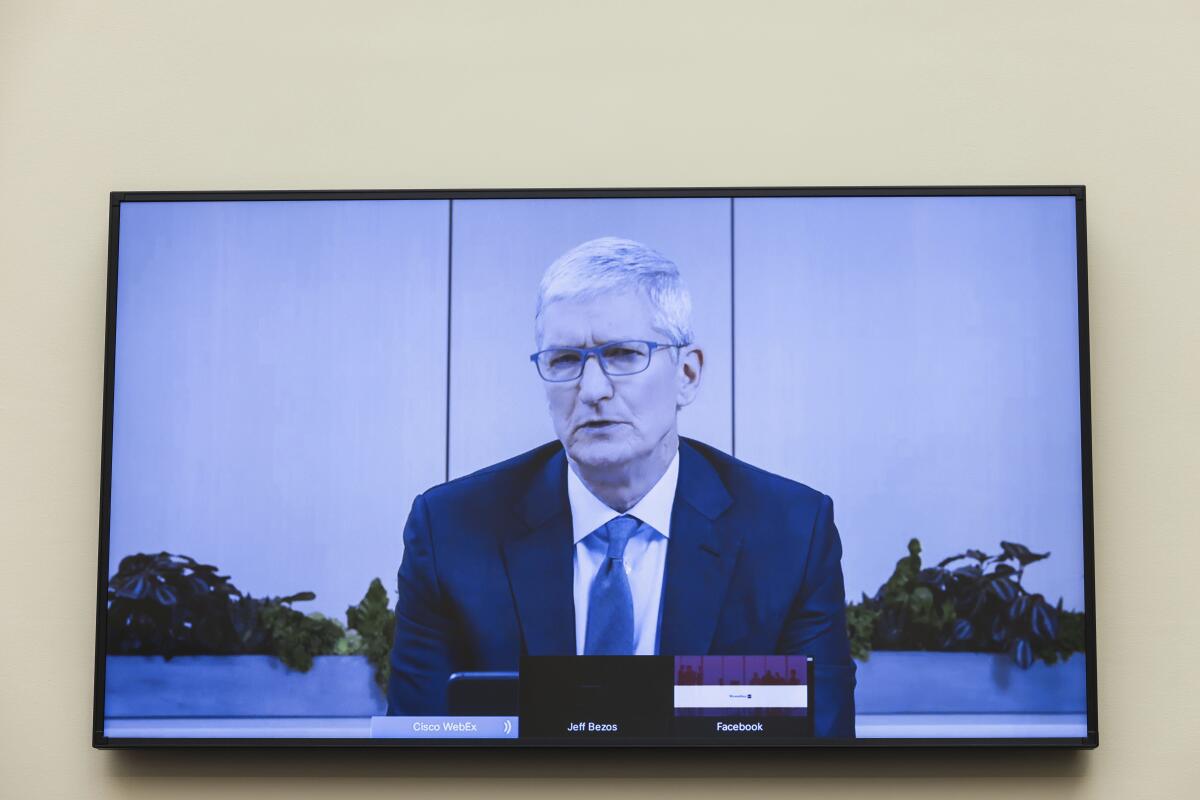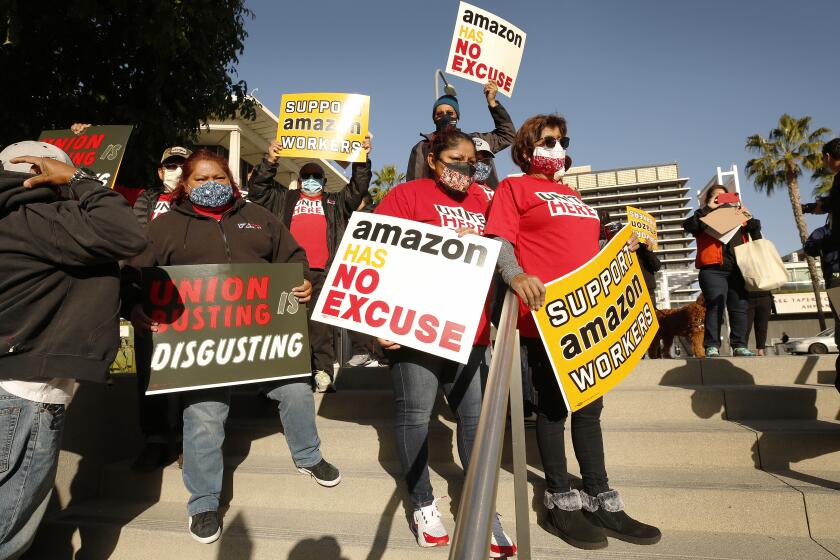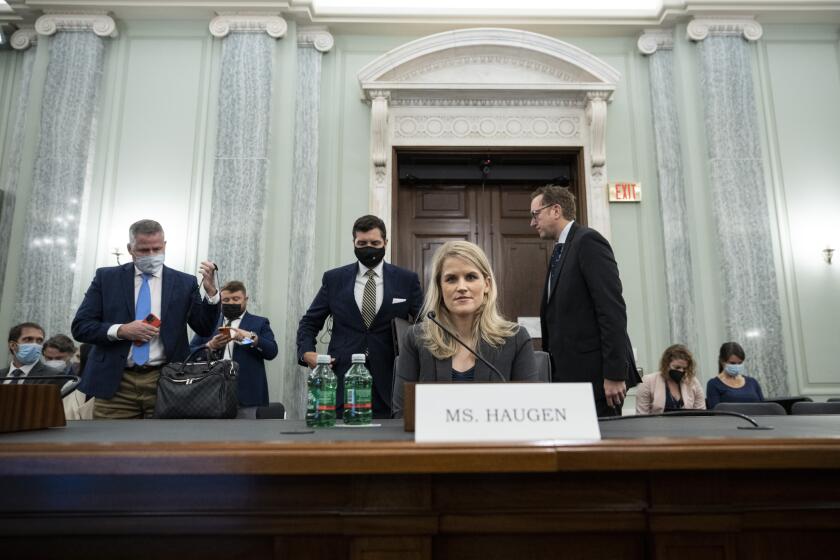Apple executives violated worker rights, U.S. labor officials say

Comments by Apple Inc. executives and policies imposed on employees have been deemed illegal by National Labor Relations Board prosecutors, who say they violate workers’ rights.
The board’s general counsel’s office has determined that “various work rules” imposed by the tech giant “tend to interfere with, restrain or coerce employees” from exercising their rights to collective action, NLRB spokesperson Kayla Blado said Monday. The agency “found merit to a charge alleging statements and conduct by Apple — including high-level executives — also violated the National Labor Relations Act.”
Unless Apple settles, the board’s regional director will issue a complaint against the Cupertino, Calif., company, Blado said in an email.
The dispute was brought to the agency by former employee Ashley Gjovik, who filed claims in 2021 alleging that an email Chief Executive Tim Cook sent pledging to punish leakers, as well as a set of policies in Apple’s employee handbook, violated federal law. Gjovik’s filings cited policies restricting staff from disclosing “business information,” talking to reporters, revealing co-workers’ compensation or posting impolite tweets.
In his all-staff email, sent in September 2021, Cook wrote that “people who leak confidential information do not belong here.” Cook’s message said that Apple was “doing everything in our power to identify those who leaked” and that it didn’t “tolerate disclosures of confidential information, whether it’s product IP or the details of a confidential meeting.”
Wildly profitable tech companies are citing an as-yet notional recession to make deep workforce cuts. They may have another agenda.
His email followed media reports about a companywide internal meeting the prior week at which management fielded questions about topics such as pay equity and Texas’ antiabortion law.
Apple didn’t immediately respond to requests for comment Monday on the NLRB’s finding.
At a hearing this month, company attorney Jason Stanevich said, “Apple fosters an open and inclusive work environment whereby employees are not just permitted, but encouraged, to share their feelings and thoughts on a range of issues, from social justice topics to pay equity to anything else that they feel is an important cause to promote in the workplace.”
U.S. labor law protects workers’ rights to communicate with one another and engage in collective action about workplace issues.
Complaints issued by NLRB prosecutors are reviewed by administrative law judges, whose rulings can be appealed to labor board members in Washington — and, from there, to federal court. The agency lacks the ability to impose punitive damages or hold executives personally liable for violations, but it can order companies to change workplace policies.
Apple, the world’s most valuable company, has faced an unusual wave of public dissent in recent years among its white-collar staff, as well as unprecedented organizing campaigns by retail employees, who voted to unionize last year in Maryland and Oklahoma.
NLRB prosecutors in recent months have also found merit in complaints that Apple illegally coerced workers at its retail stores in Atlanta and New York City, where some employees were seeking to unionize. The company has denied wrongdoing.
Silicon Valley long had a keep-it-in-the-family ethos. But recent episodes at Facebook and Netflix suggest employees seeking change from the inside face daunting obstacles — unless they’re willing to go public.
Gjovik, a senior engineering program manager, was fired by Apple in September 2021 after filing complaints with several state and federal agencies.
In documents shared by Gjovik, Apple said she was terminated for violating policies such as the disclosure of confidential product information. Gjovik has said she was fired in retaliation for her complaints, which alleged that — after voicing fears about workplace health hazards — she was harassed, humiliated and asked not to tell co-workers about her concerns.
“My hope is that for the first time Apple is told by the government that this culture of secrecy is not OK,” Gjovik said Monday. “I also hope that this sends shock waves through other corporations that even Apple can be held accountable.”
More to Read
Inside the business of entertainment
The Wide Shot brings you news, analysis and insights on everything from streaming wars to production — and what it all means for the future.
You may occasionally receive promotional content from the Los Angeles Times.












